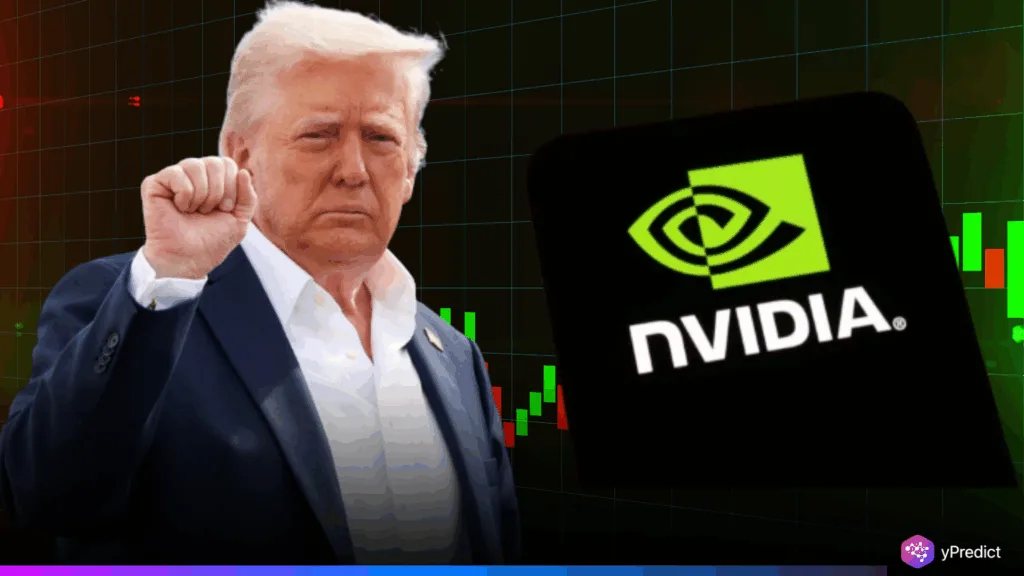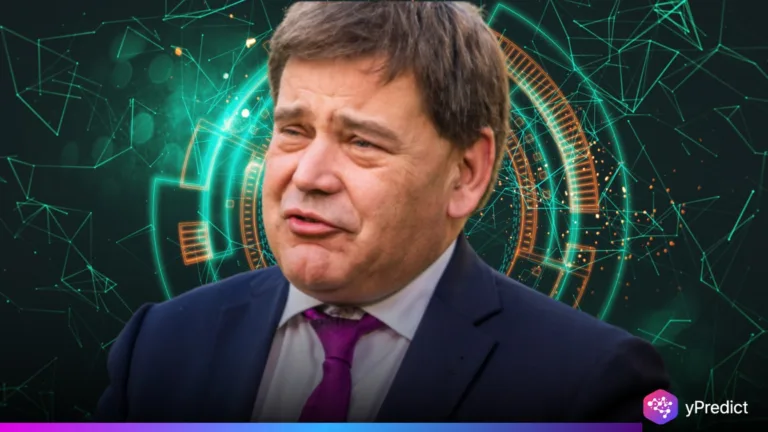
Former President Donald Trump recently acknowledged that he considered breaking up Nvidia due to its soaring power in the AI chip industry. But he quickly changed his mind, saying, “I thought about breaking up Nvidia, but then I realized no one can actually compete with them.” His comment reveals how far ahead Nvidia market has moved in the global AI arms race and why political pressure may not be enough to contain it.
Nvidia’s speedy increase in worth and power has raised eyebrows with policy makers, investors and competitors alike. Its unmatched performance in artificial intelligence, machine learning and data processing has left competitors miles away. Trump’s comments signal an awakening that Nvidia’s advantage is not predicated on acquisitions or backdoor deals, but build on scale, innovation, and many years of investment.
Why Trump’s Statement Carries Weight in Tech Circles
Trump’s statement may sound casual, but it reflects a deeper truth about Nvidia market dominance. As the AI revolution gains momentum, Nvidia has positioned itself at the center. It does not just sell chips. It builds an entire ecosystem of hardware, software, and developer tools that few can rival.
Even as politicians raise concerns over tech monopolies, Nvidia’s case is different. Unlike social media or e-commerce platforms that grow through network effects, Nvidia dominates through superior engineering. This makes traditional antitrust measures hard to apply, even for someone like Trump who has openly challenged tech giants before.
Nvidia’s Ecosystem Makes It Nearly Impossible to Replace
Nvidia’s strengths meld its chips with its software, particularly its CUDA programming framework for AI. Developers all over the world are using CUDA to create and deploy AI models. This lock-in and dependency is strong enough that even the best chips from competitors often do not get to market due to lack of software. That said, companies like AMD and Intel have spent billions in development to catch up.
However the gap is enormous. Nvidia has about 90 percent of the AI chip market. Its most advanced GPUs are now parts of essential infrastructure which can enable various industries ranging from autonomous vehicles to generative AI. No chip maker is close to Nvidia in terms of scale or performance.
Tech Regulation Faces a New Kind of Challenge
Trump’s comment also highlights the limitations of current tech regulation frameworks. Breaking up a company usually requires proof of anti-competitive behavior. But in Nvidia’s case, there is no merger to reverse or product to block. It simply outbuilt the rest.
Calls to regulate Nvidia under antitrust laws often run into the same problem. You cannot punish a company just for winning. AI chip monopoly concerns are real, but without a realistic competitor, action becomes symbolic. This is what Trump likely recognized. Even if you tried to break Nvidia up, there is no one ready to take its place.
Global Competitors Remain Far Behind in the AI Race
Several nations have tried to reduce their reliance on Nvidia chips, especially China. However, export controls and technological barriers have slowed those efforts. Even domestic alternatives in the United States like Cerebras, Groq, and Tenstorrent struggle to attract the kind of developer community that Nvidia already commands.
Meanwhile, Nvidia continues to expand. It has partnered with every major cloud provider, secured AI training deals with the biggest tech firms, and launched next-generation chips like the Blackwell series. These moves strengthen its position and make competition even harder.
Nvidia Is Building the AI Infrastructure of the Future
Trump’s decision not to act may sound like a political retreat, but it may also be an admission of reality. Nvidia is not just another big tech company. It is the foundation of the AI era. And that foundation keeps getting stronger.
Unless a major disruption occurs, Nvidia’s lead is likely to expand. It has the trust of developers, the loyalty of enterprise customers, and the resources to outpace new entrants. Nvidia market dominance is no accident. It is the result of a long-term strategy that others are now struggling to match.







